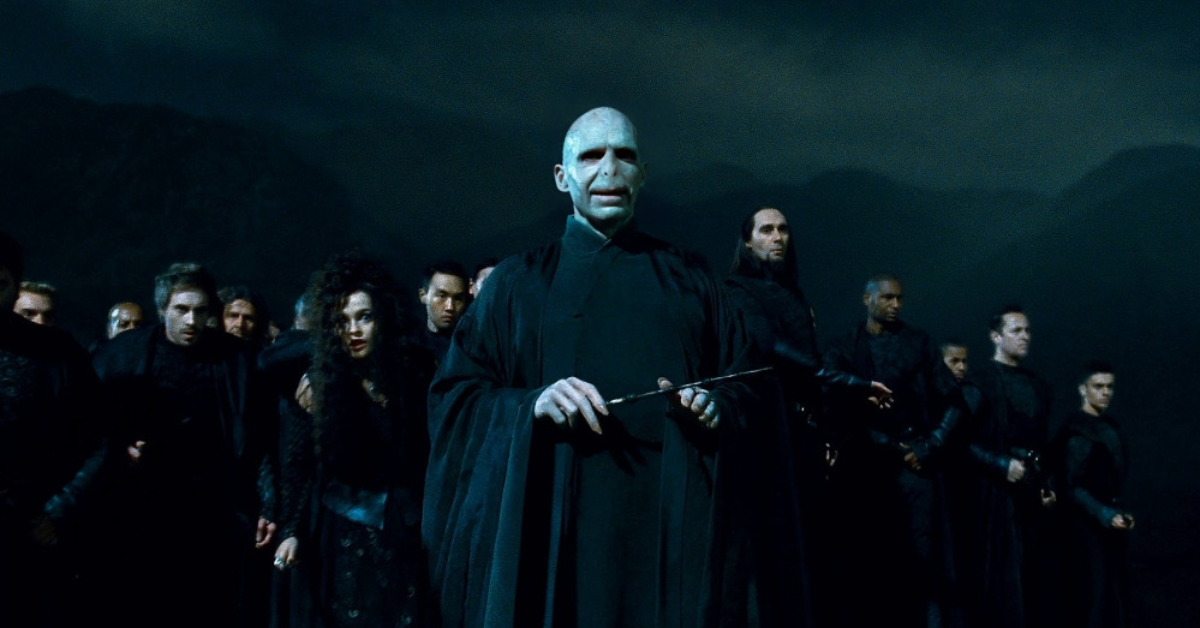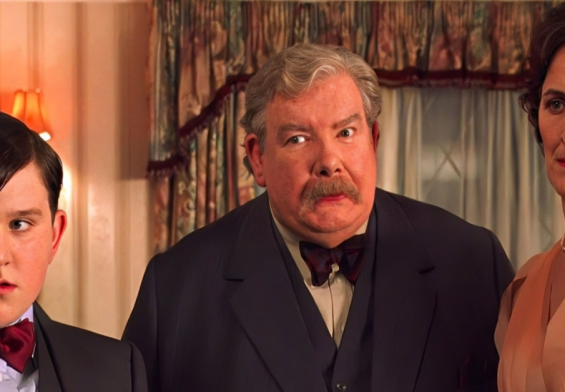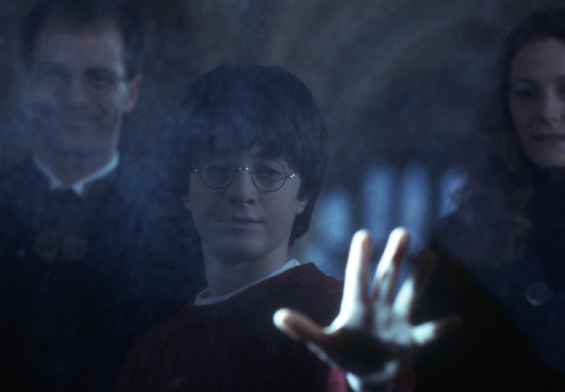
A grain of sand lost on a beach. A tiny pebble lying unnoticed on the ocean floor. A fallen acorn buried under years of autumn leaves. A faded seashell washed ashore on an uninhabited island.
These are just a few examples of the kind of objects that I would use if I was in the position to create my own Horcruxes, and I’m sure the same can be said for a lot of you.
Why? Well, they’re small, hard to locate, and perhaps most important of all, meaningless. But somehow, Voldemort missed the memo here, and instead chose objects that were eventually linked back to him.
Recommended for You:- 10 Shocking Crimes That Land Wizards in Azkaban!
- The Dark Secrets of Ollivander’s Wand Shop Exposed!
- Where Do Squibs Come From? The Truth About Wizarding Genetics!
- You Won’t Believe the Shocking Truth About Harry’s Scar!
The Flawed Selection Process
So the obvious questions here are: why was Voldemort so particular in his selection process for potential Horcruxes? And why didn’t he choose things that would be virtually impossible to find? After all, had he done what seemed so obvious—to pick meaningless inanimate objects—he may still be ruling over the wizarding world.
One Reddit user summed it up pretty well in just one sentence: “Pride, foolishness, and the magpie-like tendency towards trophies.”
Voldemort was well-known for his desire for grandeur, power, and recognition. He also had an ego that was completely out of control.
These are all important personality traits to consider because this is exactly the type of person that would choose to associate his Horcruxes with significant locations or objects that held personal meaning to him.
All indicative of his narcissistic and ego-driven nature. To him, it was somehow more satisfying to have his Horcruxes linked to his own history and achievements.
It was also a slap in the face to those associated with the artifacts he ended up using, as he was able to desecrate their legacies by corrupting these precious objects with his dark magic.
Each Horcrux he made wasn’t just a means to preserve his life; it was an act of domination over the very symbols of the wizarding world he felt he had surpassed. By turning valuable artifacts into vessels for his soul, Voldemort was essentially asserting his superiority.
Significance Behind Voldemort’s Choices
The Locket of Salazar Slytherin wasn’t just an object of protection, but a trophy of his supposed right to Slytherin’s bloodline and legacy.
The Diadem of Helga Hufflepuff represented his claim to intelligence and mastery—a twisted homage to the school that once recognized him as one of its most gifted students.
Something that all of Voldemort’s Horcruxes have in common is that they are tied to significant aspects of his life, and they are also all tied to beginnings or firsts of some kind. Dumbledore also later explains that Voldemort saved the creation of his Horcruxes for significant deaths.
The creation of his first Horcrux, the diary, was the result of the murder of Myrtle Warren. This was a significant moment in Voldemort’s history because it represented his first murder.
The object that he chose to envelope this piece of his soul was a simple diary that he had attained from a Muggle bookshop, and this is meaningful in and of itself because it represents the act of desecrating something made by the group he hates so much, Muggles.
The creation of the ring was significant because of his link to his father. The ring, an heirloom from the Gaunt family on his mother’s side, piqued Voldemort’s interest in his family history as an orphan. This led him to travel to Little Hangleton, where he encountered his uncle, Morphin Gaunt, wearing the ring.
Voldemort then stole the ring, bewitched Morphin, and subsequently traveled to his father’s home, where he promptly killed him and turned the ring into a Horcrux.
The creation of the Cup Horcrux was significant because of its connection to his mother. Many years earlier, Voldemort’s mother, Merope, fell on hard times, forcing her to sell her only valuable possession, Salazar Slytherin’s Locket, to Borgin and Burkes.
The Locket was significant because it was a family heirloom that had been passed down through the Gaunt family for generations, the same family that Voldemort’s mother hailed from.
The locket previously acquired from Borgin and Burkes was later purchased by a witch named Hepsiba Smith, who was subsequently killed by Voldemort to turn the cup into a Horcrux.
The importance of Helga Hufflepuff’s cup as a Horcrux is intertwined with the concept of the Locket serving as Voldemort’s perceived birthright, and the transformation of Nagini into a Horcrux was representative of his return to power.
Nagini became instrumental in Lord Voldemort’s survival before he could be restored to his real body, and her venom was even used as an elixir that helped him survive.
It was one of the primary ingredients in a potion that he used to rebuild his strength, and Nagini also helped Voldemort to commit numerous murders, with one murder in particular, the murder of Bertha Jorkins, sealing their bond more than ever after her transformation into a Horcrux.
The Irony of Choice and Control
The only holes in the notion that Voldemort saved Horcrux creation for significant killings are the Muggle tramp and Albanian peasant, but I’ve got a few theories for that. The Muggle tramp was the first casualty of the First Wizarding War, and for the Albanian peasant, it was the first time that Voldemort used Nagini to commit murder.
Based on all of the above, we can clearly see that Voldemort valued not only the Horcruxes themselves, but also the twisted, psychopathy-driven narratives attached to their creation. Meaningless Horcruxes simply wouldn’t fill the sick, twisted void inside of Voldemort’s lack of soul.
But ironically, it was the same desire to link his Horcruxes to notable artifacts and personal attachments that led to his downfall. Each connection he forged to significant items and places just made it easier for those seeking to destroy him to track them down, allowing Harry, Ron, and Hermione to follow the breadcrumbs of Voldemort’s own pride.
If Voldemort had been willing to set his ego aside and bind his soul to, say, a common pebble or a single grain of sand, his immortality might have been secure forever. But in the end, Voldemort’s choices reflected a fatal flaw.
He couldn’t separate his lust for immortality from his need for recognition. He didn’t just want to live forever; he wanted to be remembered forever. And that need to be acknowledged as the most powerful dark wizard of all time made his Horcruxes both a weapon and a weakness.
A Desire for Control and the Power of the Ordinary
But beyond the aforementioned reasons for his Horcrux selection methods, I think there was also a little more beneath the surface. Another one of the most notable characteristics was his desire for control.
He didn’t just crave power over people; he needed absolute control over every aspect of his life and legacy. This obsessive need for control influenced his choice of Horcruxes in a significant way.
By anchoring parts of his soul to specific, significant objects rather than random inanimate things, Voldemort believed he could better keep track of and protect his Horcruxes, ensuring that they wouldn’t be accidentally lost or destroyed.
He feared that if he used ordinary, forgettable items, they might end up misplaced, buried, or otherwise unrecoverable even by him. In theory, this was an okay idea, but we know how this worked out for him in the end.
Another reason for Voldemort choosing such exceptional and meaningful Horcruxes was his aversion to the ordinary. Everything about him had to be remarkable in some way, driven by deeply rooted disdain for anything he considered common or beneath him.
To Voldemort, using ordinary objects would have been an insult to his own legacy and ambition. He didn’t see himself as a mere wizard; he saw himself as a force destined to reshape the wizarding world.
Voldemort’s aversion to the ordinary also spoke to his underlying insecurities and sense of inadequacy. He feared insignificance, mediocrity, and the idea that he might be forgotten. By infusing his soul into extraordinary objects, he was trying to make himself unforgettable.
This sort of thing would be of particular importance to a man who believed he was abandoned by both parents, each one seemingly discarding him without a second thought.
His father walked away, leaving him behind as if he meant nothing, and his mother, in Voldemort’s eyes, chose the easy way out by surrendering to death, leaving him to fend for himself in a world that he believed had no place for him.
To Voldemort, her death was an act of weakness, even selfishness—a failure to fight for him to cling to life. And to ensure he had the future he deserved. From what he believed to be betrayal from both of his parents, his perspective on the world shifted.
He grew to believe that love, trust, and family were mere illusions, weaknesses that had no place in his life. And from that moment onward, he poured his energy into amassing power, securing his own immortality, and leaving behind a legacy that would ensure he was never forgotten again.
The Ironic End of Voldemort
That is why he didn’t just choose a grain of sand. Well, that’s all. He just hated sand as much as Anakin. Ironically, in the end, despite all of his efforts, Voldemort does die a mortal death. No fireworks display goes off, no grand spectacle marks his passing, and no one mourns him.
The man who once sought to transcend death, to become a figure of legend, simply collapses to the ground, lifeless, defeated, and utterly alone, reduced to a corpse just like anyone else. And on that happy note.
That’s it for today’s theory. Hopefully, that completely shuts the door on why Voldemort opted to choose the objects that he did. If you enjoy the content, please do comment below.



